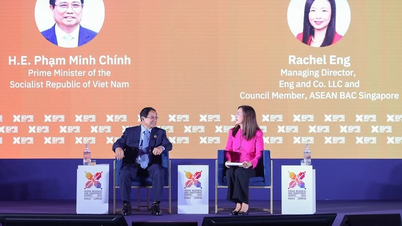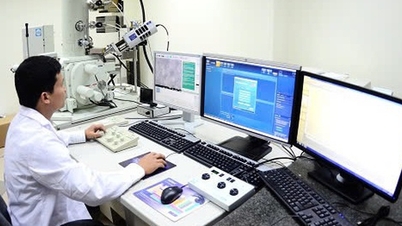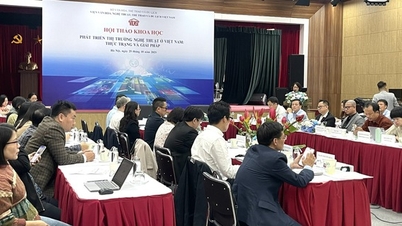
The figure, up 16% year-on-year in the quarter ended June, was the fastest growth since the 17% recorded in the quarter ended December 2021, when low interest rates spurred borrowing due to global monetary easing during the Covid-19 pandemic, according to data from QUICK FactSet.
This surge stems from a shift in business models from asset-light software, which requires little infrastructure, to AI, which requires large-scale data centers.
Oracle's interest-bearing debt has more than doubled in 10 years to $111.6 billion. The company, in partnership with OpenAI and SoftBank Group, plans to invest $500 billion in US AI infrastructure over the next four years. In September 2025, Oracle issued $18 billion in corporate bonds - money that is expected to be used for AI investments.
The total interest-bearing debt of five major US technology corporations - Amazon, Microsoft, Apple, Meta and Google's parent company Alphabet - has reached 457 billion USD, 2.8 times higher than 10 years ago.
Chinese internet giant Tencent Holdings’ interest-bearing debt has risen to $57.5 billion, 4.5 times more than a decade ago. Alibaba Group issued about $3.2 billion in corporate bonds in September to secure funding for new data centers and other projects.
Strong investor demand is supporting corporate debt financing amid abundant global capital, with Oracle's September bond offering receiving orders of about five times its offering value.
The yield on Microsoft's bond due in 2027 sometimes fell below the yield on U.S. Treasuries from May to September, reflecting investors' perception that the company is a safer bet than the government .
The proportion of companies with a debt-to-equity ratio exceeding 1 has risen to 13.8%, up 4.9 percentage points from 10 years ago. While nearly 90% of companies now have the financial capacity to withstand the pressure of repaying debt thanks to strong business results, the number of companies with excessive debt levels - like Oracle with a debt-to-equity ratio of 4.6 - is growing.
“Companies are investing aggressively ahead of the curve to avoid being left behind in the AI frenzy,” said Yoshinori Shigemi, macro strategist at investment management services firm Fidelity International. “Currently, capital flows are flowing smoothly, but if there is a bottleneck somewhere, financially weaker companies could be eliminated.”
Source: https://nhandan.vn/no-cua-cac-tap-doan-cong-nghe-len-toi-gan-1400-ty-usd-post918070.html


![[Photo] Prime Minister Pham Minh Chinh attends the opening of the 47th ASEAN Summit](https://vphoto.vietnam.vn/thumb/1200x675/vietnam/resource/IMAGE/2025/10/26/1761452925332_c2a-jpg.webp)
![[Photo] Enjoy the Liuyang Fireworks Festival in Hunan, China](https://vphoto.vietnam.vn/thumb/1200x675/vietnam/resource/IMAGE/2025/10/26/1761463428882_ndo_br_02-1-my-1-jpg.webp)



![[Photo] General Secretary To Lam received the delegation attending the international conference on Vietnam studies](https://vphoto.vietnam.vn/thumb/1200x675/vietnam/resource/IMAGE/2025/10/26/1761456527874_a1-bnd-5260-7947-jpg.webp)















![[Photo] General Secretary To Lam received the delegation attending the international conference on Vietnam studies](https://vphoto.vietnam.vn/thumb/402x226/vietnam/resource/IMAGE/2025/10/26/1761456527874_a1-bnd-5260-7947-jpg.webp)



![[Photo] Prime Minister Pham Minh Chinh and United Nations Secretary-General Antonio Guterres attend the Press Conference of the Hanoi Convention Signing Ceremony](https://vphoto.vietnam.vn/thumb/1200x675/vietnam/resource/IMAGE/2025/10/25/1761391413866_conguoctt-jpg.webp)












































































Comment (0)